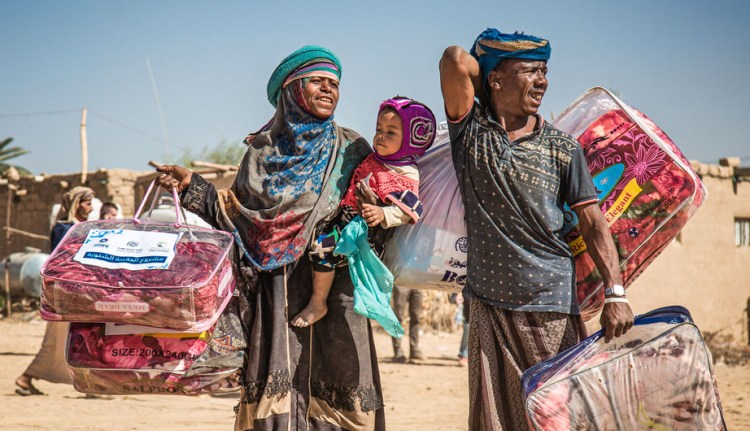UNHCR warns of alarming levels of needs in Yemen as more people forced to flee
A recent UNHCR needs assessment showed that conditions at the settlements are deplorable.

As fighting in Yemen’s Marib governorate forces more people to flee, UNHCR, the UN Refugee Agency, is warning of alarming levels of humanitarian needs among displaced communities, including for shelter.
Since the beginning of the year, close to 24,000 people have been uprooted by armed clashes, shelling and airstrikes in Marib governorate – a region that is already hosting a quarter of Yemen’s four million internally displaced people. They have sought safety in urban centres and about 150 informal settlements.
A recent UNHCR needs assessment showed that conditions at the settlements are deplorable. They have exceeded capacity, hosting in total nearly 190,000 people. Shelters are inadequate, and many have been further damaged by recent floods and fire incidents due to open-fire cooking. Given the scarce resources from humanitarian partners, scores of displaced families have been forced to build their own accommodation, using old blankets and plastic sheeting.
Clean water, latrines, electricity and health facilities are in short supply. Only 21 per cent of residents are reachable by aid organizations due to the prevailing insecurity, as these families were displaced in the vicinity of active frontlines. UNHCR is calling on all parties to the conflict to ensure unimpeded access to the settlements to guarantee the safe delivery of life-saving assistance.
With nine in 10 of the settlements built on private land and without occupancy agreements, fear is high among the residents about the threat of eviction. Eviction is also a key concern in urban centres, as rental prices have soared after the recent wave of displacements. A striking 85 per cent of displaced families are unable to pay rent on a regular basis as livelihoods opportunities are scarce, and a quarter of those displaced in Marib have no source of income. Further displacement, due to eviction, would only deplete their own resources and increase their needs.
Women and children constitute 80 per cent of the displaced. With limited shelter options, they are the ones who suffer most from the ensuing overcrowding, lack of privacy and limited access to basic services, such as toilets or water.
With our partners, the Society for Humanitarian Solidarity (SHS), and Human Access, UNHCR is providing basic household items, legal assistance and psychosocial support in seven settlements in Marib’s Sirwah district, hosting some 20,000 people. Additionally, we have distributed cash for rent to over 2,800 families, as part of a plan to assist some 6,000 families at risk of eviction.
Ending the conflict is the only way to stop displacement and the suffering of the Yemeni people. UNHCR reiterates its call to all parties to the conflict to take the necessary measures to protect civilians and public infrastructure from the impact of the conflict and to provide safe passage for civilians fleeing conflict areas.










